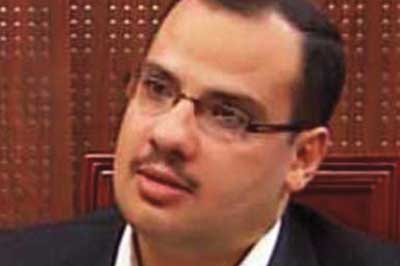The promises obtained by Jordan from the Makkah summit are not enough to save it from the economic crisis. In addition to this, they are still in the context of promises that have no announced implementation date.
The three Gulf states have pledged $2.5 billion in total as aid to Jordan, which will be used to support the budget and distributed over the next five years. It also includes development projects, a deposit in the Central Bank, and guarantees in the World Bank. However, the most important aspect of these promises is that details of the dates and distributions have not been announced. How much is the deposit in the Central Bank? When will it be deposited? What is the amount of the budget support (which is the most important issue) and when will it be paid? No one knows yet.
What we do know is that this aid is insufficient and cannot resolve the economic crisis suffered by Jordan, which forced the previous government to propose a draft bill that proposes raising the income tax imposed on Jordanians. Those who want to make sure that these promises, if kept, are still insufficient just need to study the following figures, date and information to realise the magnitude of the crisis the Jordanian economy is suffering from:
First, in 2011 alone, Jordan received foreign aid amounting to $1.7 billion, and in 2014 it received $1.73 billion. As for last year, 2017, foreign aid dropped by almost half of this, and fell by 15 per cent compared to the year before, i.e. 2016.
READ: Gulf states pledge $2.5bn aid to Jordan
Secondly, in 2016, a five-year Gulf Development Grant to Jordan (2012 to 2016) ended. It had amounted to $5 billion in total, meaning that during this period, Jordan received $1 billion a year in the form of Gulf development projects.
Thirdly, there are 750,000 Jordanian expatriates in the world, 400,000 of whom are residing in Saudi Arabia, according to a past statement made by the Jordanian Ambassador to Riyadh, Jamal Al-Shamayleh. This means more than half of Jordanian expatriates around the world are based in Saudi Arabia, and their remittances are an important contribution to the Jordanian economy. A large percentage of these expats have started to return to Jordan after losing their jobs in Saudi Arabia as a result of the new laws or were forced to return because of the new fees imposed on families residing in Saudi Arabia.
Fourth, in terms of figures, the total remittances from Jordanians working abroad are $3.8 billion annually, which constitutes ten per cent of Jordan’s gross domestic product. This ultimately means that remittances are more important for the Jordanian economy than foreign aid itself, including all of its deposits, oil grants and direct monetary assistance.
READ: Gulf intervention in Jordan has raised suspicions across the region
In view of this data and information, all of which is taken from official Jordanian sources, we must talk about a need of much more than the $2.5 billion from the summit in Makkah. This is especially true if we take into consideration the fact that the support given to the budget will be distributed over five years and not all given this year. The deficit in the budget last year alone was over $1 billion and this year is expected to have a similar or greater deficit, meaning that the budget deficit alone in the next five years will need $5 billion.
Today, Jordan needs something after the Makkah summit and needs more help than any time before. The region has changed and is still changing and the economic burdens are enormous. Jordan is hosting millions of Syrian, Palestinian and Iraqi refugees who are the victims of international conflicts and crises. The world must take responsibility for them, not abandon them.
This article first appeared in Arabic in Arabi21 on 13 June 2018
The views expressed in this article belong to the author and do not necessarily reflect the editorial policy of Middle East Monitor.


![King of Saudi Arabia, Salman bin Abdulaziz Al Saud (C-L), Jordanian King Abdullah II (C-R), Kuwaiti Emir Sheikh Sabah Al-Ahmad Al-Jaber Al-Sabah (L) and Vice President of the United Arab Emirates (UAE), Sheikh Mohammed bin Rashid Al Maktoum (R) meet within a summit to discuss ways of easing an ongoing economic crisis in Jordan, on 11 June, 2018 in Mecca, Saudi Arabia [Saudi Kingdom Handout/Anadolu Agency]](https://i0.wp.com/www.middleeastmonitor.com/wp-content/uploads/2018/06/jhjd.jpg?fit=1200%2C800&ssl=1)









